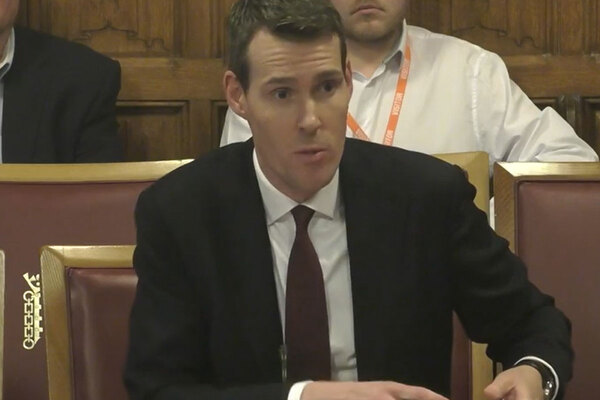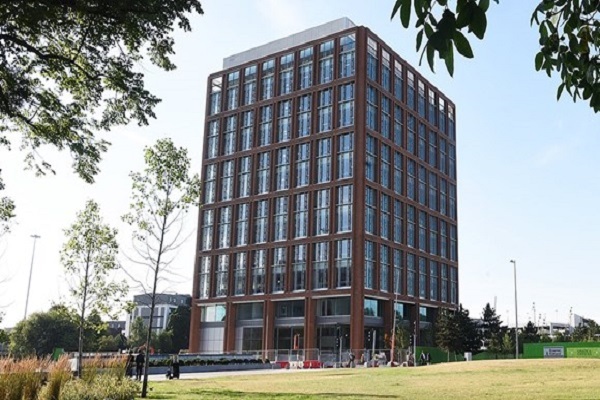You are viewing 1 of your 1 free articles
Knife crime eviction threat comments taken ‘completely out of context’, says Labour councillor
The leader of Barking and Dagenham Council has told Inside Housing that his threat to evict tenants who do not report knife crime were taken “completely out of context” as he reiterated his drive to create safer communities.

Darren Rodwell was described as a “Labour rising star” in a Guardian article last month, which reported a plan to threaten families with eviction if children do not inform on knife crime.
Mr Rodwell said: “If your child is involved in an incident and knows who the perpetrators are and refuses to speak out, we will look at reviewing your housing agreement.”
The views caused somewhat of a stir in the sector, with several experts in housing and anti-social behaviour (ASB) case law pointing out why the idea would be difficult to implement.
But in a follow-up interview with Inside Housing, Mr Rodwell said the quotes were “completely out of context to the questions that I was being asked”.
He added: “I did the original interview, it got picked up and sensationalised to make me sound like I was some sort of [Benito] Mussolini.”
Keen to expand on his earlier remarks, and distance himself from the former Italian fascist leader, Mr Rodwell referred to Barking and Dagenham Council’s 44-page tenancy agreement.
He said: “Under the tenancy agreement – which they sign – we can serve notice on them, if they know that their children are doing wrong and are involved in gangs, or knife crime and being anti-social.”
Mr Rodwell described it as “an extreme bit of the anti-social behaviour legislation”, but provision for its use was on page 13 of the tenancy agreement.
He said the definition of anti-social behaviour he was referring to comes from Section 153A of the Housing Act 1996 and under Section 1 of the Crime and Disorder Act 1998.
He explained the council has its own ASB team that has a number of tools to deal with these issues, such as community protection rulings, community protection orders, criminal behaviour orders and foreclosure orders.
Mr Rodwell pushed back against any suggestion that the policy would be discriminatory against social housing tenants and even took issue with the term ‘social housing’ as someone who had grown up in a council house.
He said: “This is not discriminatory against anybody; it is asking people to value the community and be good residents. We will go after anybody no matter what tenure they are, if they are being disrespectful to the wider community.”
He claimed that Barking and Dagenham Council is the only local authority in the country that has a private landlord licensing scheme, and it would take up any issues with residents in that scheme as well.
Returning to those in social homes, Mr Rodwell said: “If you’re not willing to play by the community’s values, then there are 6,400 other families waiting to get in that property that will do, so it’s nothing new [the policy]. It was just the way it was articulated.”
On the subject of what would happen to those households who were asked to give up their tenancy or, at the same time, those maybe threatened with violence for speaking out against knife crime, he said: “If there is ever a situation where that young person feels threatened, I will do everything in my powers to make them safe.
“If they need to be relocated somewhere else, I will do that. I’d rather that young person be alive and have a future, than end up in some life-changing or gang-related situation.”
He admitted that rehousing tenants who had been asked to leave their home due to ASB would be difficult at a time of long waiting lists for social housing and increasing demand for temporary accommodation.
He added: “The truth of the matter is, are we going to do nothing? Because if we do nothing, all that does is create a downward spiral in those communities. I’ve got residents who are contacting me who say they can’t walk down the local shops anymore because they feel too afraid.”
“None of this is easy.”
This is why, Mr Rodwell explained, the borough launched the Lost Hours campaign in October last year. An initiative named in response to a rise in youth violence and ASB between the hours of 3pm and 7pm, when children finish school and their parents get home from work.
In Barking and Dagenham at the time of the launch, there had been 67 recorded knife attacks where a young person has been injured and 1,794 robberies of personal property by a young person in the borough.
The scheme was designed with young people and parents, and is part of a wider initiative that works with partners such as the police and youth services to tackle this issue through a range of interventions, including outreach work with young people, education through schools and enforcement activity.
It offers residents advice and support for where to report concerns about a young person’s welfare, preventive and safeguarding support, and how to report crime anonymously.
Mr Rodwell stated: “I am passionate about making sure everything starts with a good home, but to do that, you need a good and safe community that will help improve yours and your kids’ life chances. That’s what my community asked us to do, so that’s what we’ll do.”
Sign up for our Council Focus newsletter
Already have an account? Click here to manage your newsletters











